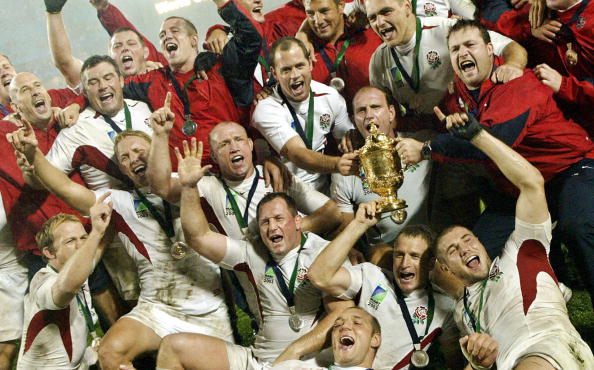Two lasting legacies from England’s 2003 Rugby World Cup triumph? Marginal gains and brain injuries

At around 10:30 am UK time, 20 years ago today in 2003, England fly-half Jonny Wilkinson caught a pass from his No9 Matt Dawson, dropped it on his foot and dissected the uprights of Stadium Australia in Sydney to win his side the Rugby World Cup.
It was the first, and remains the only, victory at the quadrennial tournament for any British, European or northern hemisphere side and has long been associated with the very best days of English rugby union.
As the fists of thousands of travelling fans and expats in Australia were aloft with delight, head coach [now] Sir Clive Woodward looked on knowing the game wasn’t over.
But following the final nerve wracking 20 seconds of a match that went into extra time, he, too, could celebrate the achievement.
England history makers
Wins against Georgia, South Africa, Samoa and Uruguay got England to the knockouts, where victories versus Wales and France handed the Martin Johnson-captained side their eventual shot at winning the final against Australia.
And though the players of that era are no longer gracing the sports field, with many of whom mostly out of the game entirely, two themes of that famous win down in Sydney remain prominent in sport today: marginal gains and brain injuries.
Though Woodward did not coin the marginal gains phrase he was a keen observer of its philosophy.
He once said: “Winning the Rugby world cup was not about doing one thing 100 per cent better, but about doing 100 things 1 per cent better”.
Today the theory of marginal gains is almost expected within the realm of thought of any coach or set-up, but it was less of a fashion in the early noughties.
He hired the likes of Dr Sherylle Calder, the leading visual awareness coach of the time, who went on to work with the successful South Africa team four years later.
His attention to meticulous detail is a reminder of what it takes to win at the elite level. It takes philosophy, physiotherapy, awareness, physicality, mental toughness and the rest.
Darker legacy
But England’s triumphant Rugby World Cup victory has left, and will continue to leave, a darker, more repulsive legacy in the form of brain injuries.
Steve Thompson, who started for the Red Rose at hooker on that Saturday evening in Sydney in 2003, does not remember winning the World Cup.
Rugby has a problem with concussion and brain injuries. And it is a problem the sport is now trying to tackle.
It is somewhat fitting of Thompson’s faded memories that, on the 20th anniversary of the victory, nearly 300 former players, both professional and amateur, are suing the game for the damage it did to their brains.
It is a part of rugby the game is trying to grapple with urgently given the consequences of not doing are becoming more apparent as the years roll by.
So when we look back on 2003 and one of the greatest moments in English sport it is incredible to see the contrast in what can be taken from those 100 minutes: historic glory for England, a new era for the 1 per centers and the lasting consequences of a contact sport.